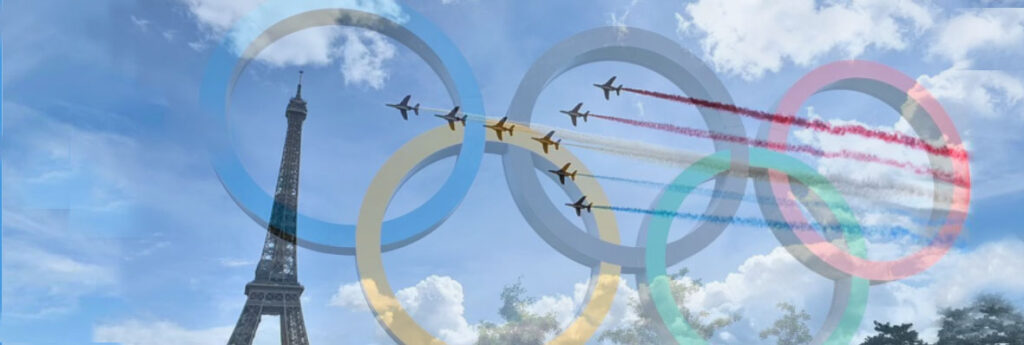From competitive break-dancing to public participation events, the next Olympics promises to be like no other – and one “in tune with the aspirations of a younger generation.” And when the Games of the 33rd Olympiad kick off in the summer of 2024, host city Paris will be ready to “wow the world.”
On Sunday, with the conclusion of the Tokyo Olympics, France officially received the Olympic baton as host nation of the next Summer Olympic and Paralympic Games to be July 26-Aug. 11, 2024. The Games will be the largest event ever organized in the country, the third held in France, and will mark the centenary of the first Games there in 1924.
Organizers say the Games will an inclusive, interactive, and sustainable celebration of sport: the first fully gender-balanced and carbon-neutral Olympics. And a younger generation of viewers in mind, the Paris event will add breakdancing, which will join skateboarding, sport climbing and surfing, all of which made their Olympic debut in Tokyo. In total, there will be 32 disciplines contested.
Additionally, “in the spirit of reconnecting communities and sharing the Games with as many people as possible,” they will also be the first in Olympic history to include a public version of the marathon and road cycling events, where members of the public can apply to follow in the athletes’ footsteps on the same day and course as the medal races.
There will also be new ceremony concepts, aiming to transport the celebrations to people in public spaces rather than contain them in a single stadium.
Venues
Paris 2024 will also demonstrate creativity and inclusivity in terms of venues, favouring not only the capital’s traditional sports venues but also its famous landmarks, as well as cities in other parts of France and the Overseas Territories.
Aiming to bring sport and heritage together in unexpected ways, fans, example, will be able to see beach volleyball at the foot of the Eiffel Tower, archery against Les Invalides, BMX freestyle on Place de la Concorde, taekwondo at the Grand Palais, and equestrian disciplines at the Chateau de Versailles.
Further afield, the cities of Nantes, Bordeaux, Lyon, Nice and Marseille will host football matches – the latter also hosting sailing – and the island of Tahiti in French Polynesia will be the site for surfing.
Sustainable
Meanwhile, by maximizing the use of existing infrastructure for 95% of needs and only building facilities that are needed by the local population, the carbon footprint of Paris 2024 will be half that of previous Games in France.
Fast facts
• The 2024 Games will be the third time that Paris has hosted the Summer Olympics, but the first time in a century – the last occasion was in 1924. Before that in Paris in 1900.
• The program a hundred years ago included 126 trials in only17 disciplines and lasted for four months
• Only 135 of the 3,089 athletes vying for victory were women
• Although the event was gaining prominence around the world, only 44 countries sent athletes to compete
• Paris was the city that invented the notion of an Olympic Village, which all Games since 1924 have adopted
• 2024 will also be a century since the inaugural Winter Olympics, held in the French mountain resort of Chamonix earlier in 1924.
• French educator and historian Pierre de Coubertin (1863-1937) founded the International Olympic Committee (IOC). His congress at the Sorbonne in Paris in 1894 led to the decision to hold the Olympics every four years, with a program of modern rather than ancient sports. The Pierre de Courbetin medal – also known as the Coubertin medal or the True Spirit of Sportsmanship medal – is an award given by the IOC to athletes who demonstrate the spirit of sportsmanship at the Olympic Games.
• The Olympic mascot will be revealed in the autumn of 2022, with 13.5 million tickets going on public sale in 2023.

